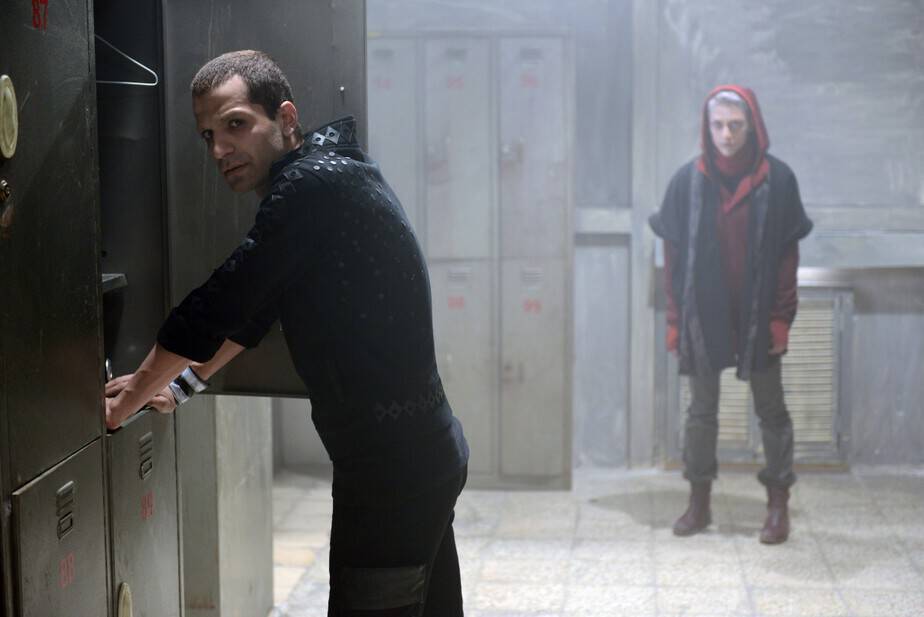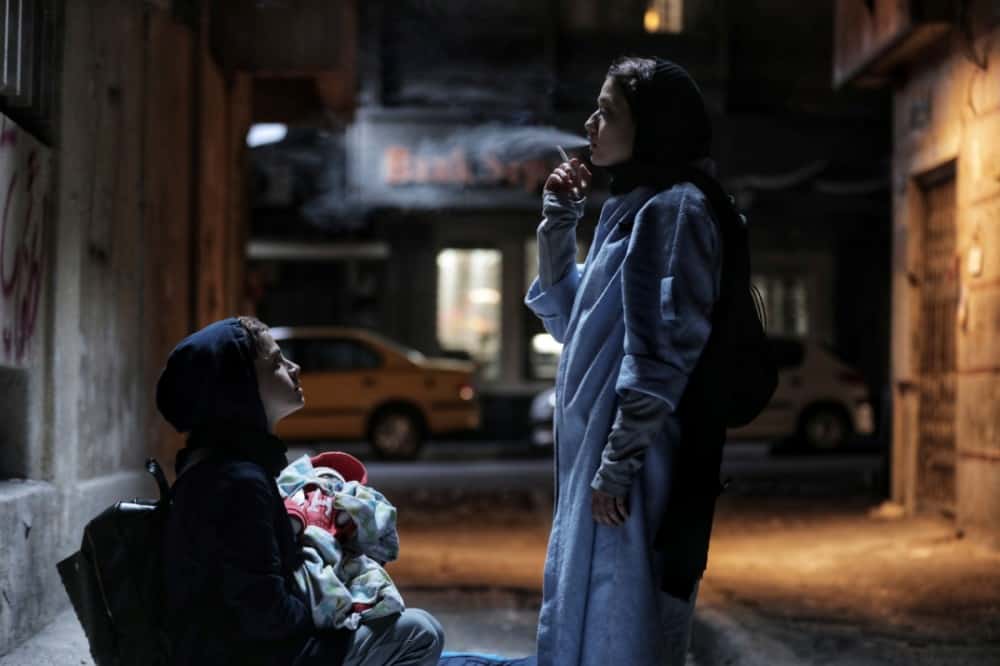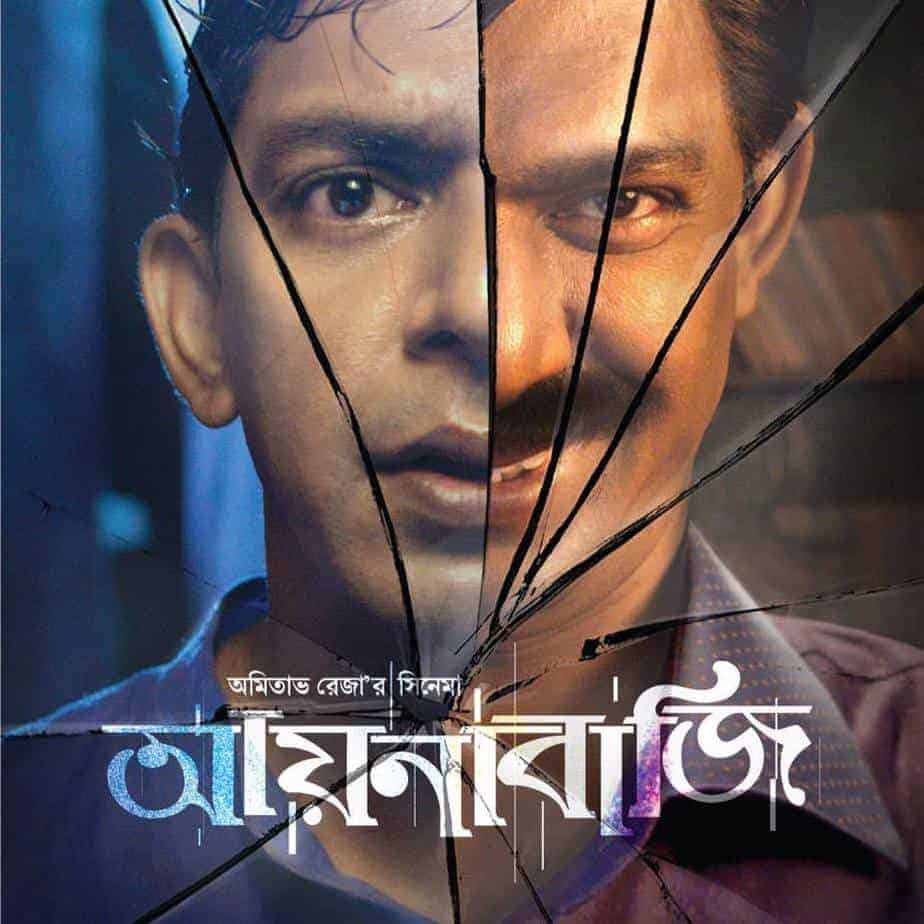The path to paradise, so it has been foretold in Islamic scripture, is through loving and respecting one's own mother. As axiomatic yet clichéd as this sentiment may seem today, there is some merit to these words: to be connected to the family matriarch is to remain closely tied to one's own culture. To retain such a connection means to possess a greater understanding of who we are, not just as individuals but members of a greater cause. From a three-minute short to a one-woman play to a feature length debut, Fawzia Mirza's ‘The Queen of My Dreams' is an ambitious demonstration of what happens when that connection has been compromised, and the journey required to claim it back.
The Queen Of My Dreams is screening at San Diego Asian Film Festival Spring Showcase

After her father (Hamza Haq) dies tragically during a visit to Pakistan, Azra (Amrit Kaur) finds herself a million miles away from the comfort of her girlfriend and her studies to confront a world she has only known through stories and other people. Travelling with her brother (Ali A. Kazmi) for the funeral, she loses herself within the spectacular sights, sounds, and smells of Karachi before coming face-to-face with her conservative mother Mariam (Nimra Bucha) with whom she has had a strained and contentious relationship since she was twelve years old. By setting foot into her parent's old world she embarks on a fantastical voyage of memories both real and imagined to the Karachi of her parent's youth through the eyes of her mother (a dual handled so elegantly by Kaur) before revisiting her own journey of discovery many years later.
With its playful, often tongue-in-cheek take on traditional Bollywood tropes and features – including the frequent dual role of its leads – ‘The Queen of My Dreams' “bashes you on the head with symbolism” in the same way Azra refers to her beloved ‘Aradhana' early on. So central is the aforementioned Sharmila Tagore-starring picture to Mirza, to Mariam, and to Azra's upbringing that its title is lifted from its infectiously catchy opening song Mere Sapnon Ki Rani; that the film is peppered with re-enactments of key scenes breaking narrative flow in much the same way as musical numbers typically employ; that even the film's color pallet often mimics that of the 1969 picture. This is not without purpose: it is the one unifying element across its three vivid intersections, the foundation of which Mariam and Azra's mother-daughter relationship is built upon. From seeing Mariam's eyes light up in the movie theatre seeing it for the first time to Azra's boisterous recital of the song as she introduces the film to her girlfriend, Mirza captures its bewildering and profound impact with nothing but adoration.
Check also this interview
Following the usual notions of third culture narratives which have long preceded ‘The Queen of My Dreams' – where Mirza's heroine/s are at constant odds with the conservative attitudes of their parents in not so much an act of rebellion but as a trailblazing march toward greater autonomy – it is the film's cast as its heart and spirit that breathes so much vibrant life into this project. As Azra, Kaur dignifies her inner struggles with a rambunctious individualism, but she is electrifying as the young Mariam, a wide-eyed free-spirit with her heart set on adventure with the love of her life. The debonair Haq revives the lost art of sophisticated, organic coolness in both iterations of his character – an ambitious surgeon-in-training who woos both Mariam and the audience in his youth and as a dad telling bad dad-jokes serving as the glue keeping his family together. Bucha and Ayana Manji, who plays the younger Azra living in Nova Scotia, are so adept at exhibiting their inner turmoil and navigating the awkward path toward sexual discovery respectively, they provide an unwavering contrast to Mirza's debut.
And yet, for all this film's charm, fervour, and indulgences, it is almost all for nought. In their pursuit of chronicling the fraught and tumultuous mother-daughter relationship at the film's very core, Mirza's non-linear approach frequently feels haphazard and clumsy. To whom do these flashbacks or imagined fantasies benefit? Unless the argument can be made otherwise, they serve little purpose in Azra's arc as far as narrative devices are concerned, especially as there is very little payoff towards the film's end. Such concerns ought to be taken lightly however, for the aforementioned symbolism and the journey itself does outweigh this blemish on the film's emotional impact. Throughout the 1999 timeline, Mariam denounces Azra and calls him selfish; ultimately, this is Mirza rekindling her bond with their mother, finding their way back to the path leading towards their idea of paradise.
What is most striking about this film is the world in which Mirza and her team so meticulously crafted within, which her characters spent pining and exploring themselves. Cinematographer Matt Irwin frames this world with such tantalizing detail, and with the aid of Simone Smith in the cutting room, this film's distinct identity is brimming with tenacity and confidence; those sequences of repeated preparation for Mariam's suiter arrangements and her later Tupperware gatherings stand out amongst the film's unforgettable moments. Karachi, both in 1969 and 1999 as far as this film is concerned is also wholly inviting.
A film of concurrent parallels, ‘The Queen of My Dreams' is more than just a mere homage to the classic Bollywood cinema which captured Mirza's fervent imagination in her youth – it is a loving portrait of women on a voyage of reconnection, a testament to the undying maternal bonds no matter the adversity faced. Piecing together Mariam's journey back to Allah, seeing the world through her eyes and not wishing tragedy to befall her daughter can take a minute to deeply appreciate but how Mirza and their cast handle this multifaceted and touching story is deeply profound. Calling this a passion project is to do this film a disservice: this is Mirza's own quest for self-love that has continued to evolve at least since the short film landed a decade ago.















